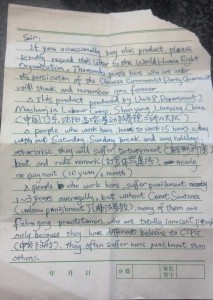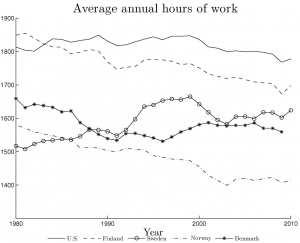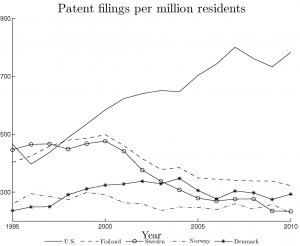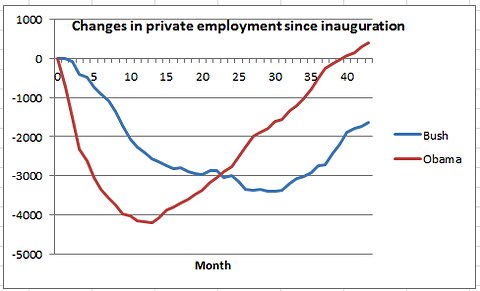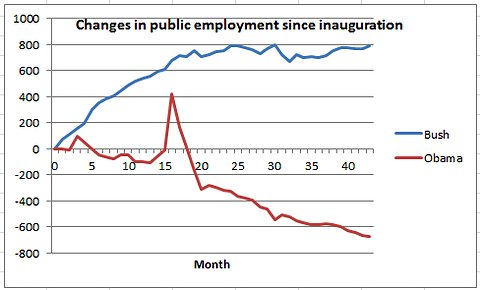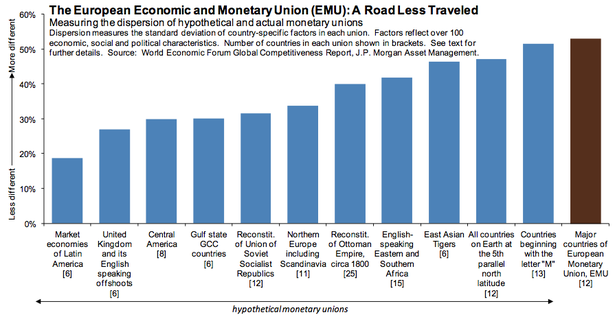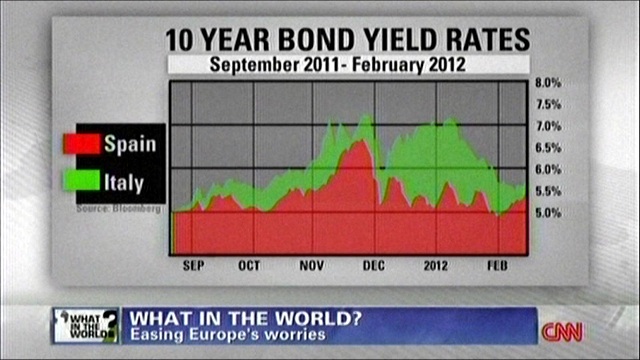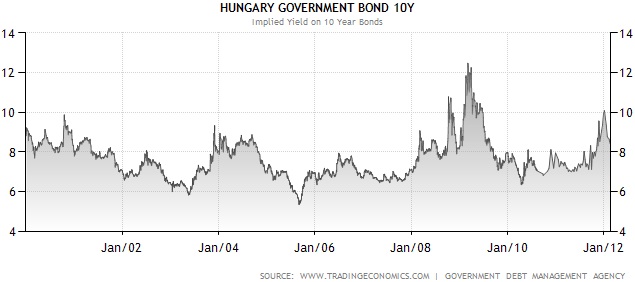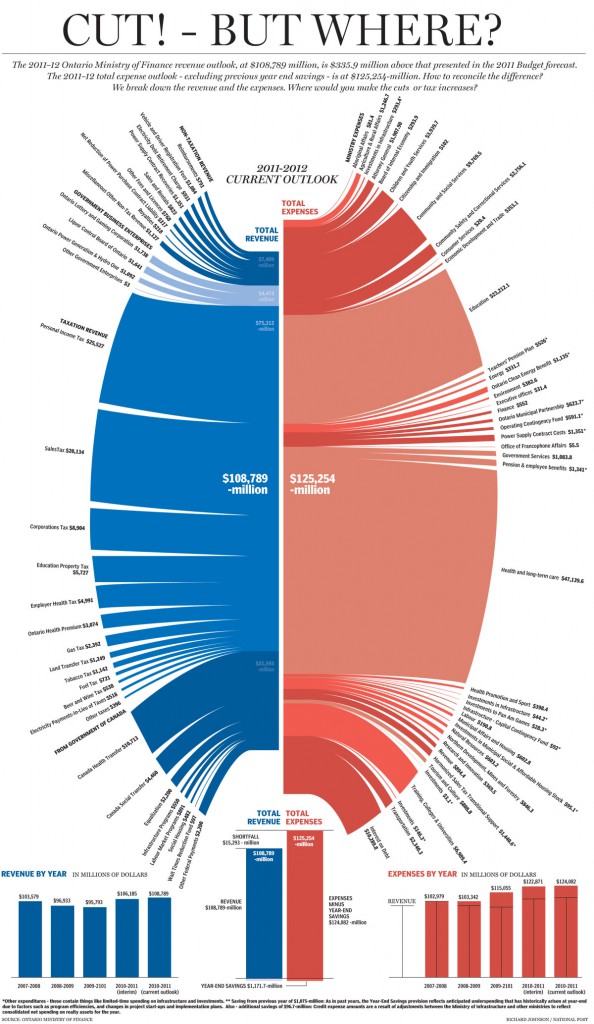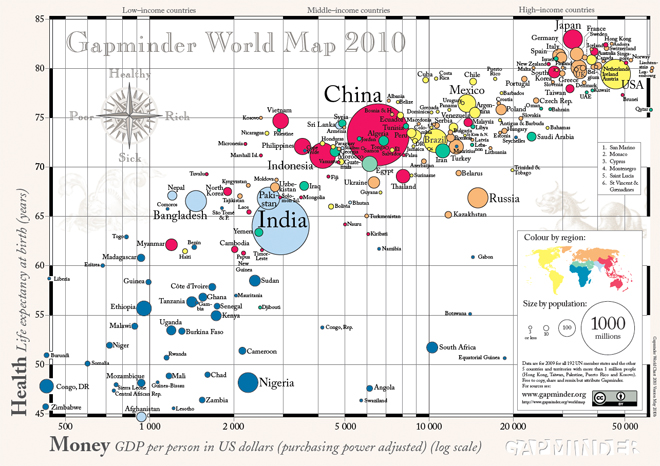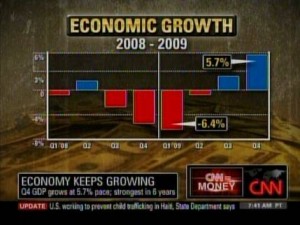I just came across this delightful imaginary conversation between a physicist and an economist about the unsustainability of perpetual economic growth.
The physicist uses energy production in his argument: growth at present rates means that in a few hundred years, we’ll produce enough energy to start boiling the oceans. And this is not something that can be addressed easily by the magic of technology. When waste heat is produced, the only way to get rid of it is to radiate it away into space. After about 1400 years of continuous growth, the Earth will be radiating more energy (all man-made) than the Sun, which means it would have to be a lot hotter than the Sun, on account of its smaller size. And in about 2500 years, we would exceed the thermal output of the whole Milky Way.
This, of course, is nonsense, which means terrestrial energy production will be capped eventually by basic physics. If GDP would continue to grow nonetheless, it would mean that the price of energy relative to other stuff would decrease to zero. This is also nonsense, since a limited resource cannot become arbitrarily cheap. But that means GDP growth must also be capped.
What I liked about this argument is that it is not emotional or ideological; it’s not about hugging trees or hating capitalism. It is about basic physics and elementary logic that is difficult to escape. In fact, it can be put in the form of equations. Our present energy production \(P_0\) is approximately 15 TW, which is about 0.002% of the Sun’s output that reaches the Earth:
\begin{align}
P_0&\simeq 1.5 \times 10^{13}~\rm{W},\\
P_\odot&\simeq 7 \times 10^{17}~\rm{W},\\
\eta_0&=P_0/P_\odot \sim 0.002\%.
\end{align}
For any other value of \(\eta\), there is a corresponding value of \(P\):
\begin{align}
P=\eta P_\odot.
\end{align}
Now all we need is to establish a maximum value of \(\eta\) that we can live with; say, \(\eta_{\rm max}=1\%\). This tells us the maximum amount of energy that we can produce here in the Earth without cooking ourselves:
\begin{align}
P_{\rm max}=\eta_{\rm max}P_\odot.
\end{align}
On the economic side of this argument, there is the percentage of GDP that is spent on energy. In the US, this is about 8%. For lack of a better value, let me stick to this one:
\begin{align}
\kappa_0\sim 8\%.
\end{align}
How low can \(\kappa\) get? That may be debatable, but it cannot become arbitrarily low. So there is a value \(\kappa_{\rm min}\).
The rest is just basic arithmetic. GDP is proportional to the total energy produced, divided by \(\kappa\):
\begin{align}
{\rm GDP}&\propto \frac{\eta}{\kappa}P_\odot,\\
{\rm GDP}_{\rm max}&\propto \frac{\eta_{\rm \max}}{\kappa_{\rm min}}P_\odot,
\end{align}
And in particular:
\begin{align}
{\rm GDP}_{\rm max}&=\frac{\eta_{\rm max}\kappa_0}{\eta_0\kappa_{\rm min}}{\rm GDP}_0,
\end{align}
where \({\rm GDP}_0\) is the present GDP.
We know \(\eta_0\sim 0.002\%\). We know \(\kappa_0=8\%\). We can guess that \(\eta_{\rm max}\lesssim 1\%\) and \(\kappa_{\rm min}\gtrsim 1\%\). This means that
\begin{align}
{\rm GDP}_{\rm max}\lesssim 4,000\times {\rm GDP}_0.
\end{align}
This is it. A hard limit imposed by thermodynamics. But hey… four thousand is a big number, isn’t it? Well… sort of. At a constant 3% rate of annual growth, the economy will increase to four thousand times its present size in a mere 280 years or so. One may tweak the numbers a little here and there, but the fact that physics imposes such a hard limit remains. The logic is inescapable.
Or is it? The word “escape” may be appropriate here for more than one reason, as there is one obvious way to evade this argument: escape into space. In a few hundred years, humanity may have spread throughout the solar system, and energy amounts enough to boil the Earth’s oceans may be powering human colonies in the hostile (and cold!) environments near the outer planets.
That is, if humans are still around a few hundred years from now. One can only hope.

